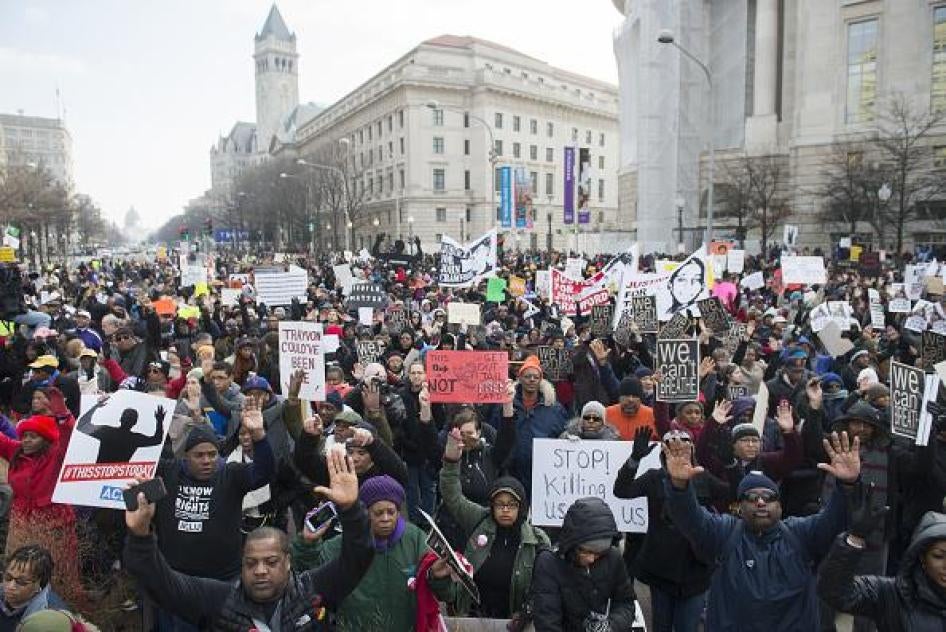Today, Americans will mark the 23rd national day against police brutality to draw attention to unjustifiable police killings that occur too often yet rarely end up in a courtroom. In 2018, police killed 852 people, according to Mapping Police Violence, a research collaborative collecting comprehensive data on police killings nationwide. Black people are three times as likely to be killed by police as white people, and Native Americans are killed at an even higher rate.
In a recording released on October 16, an off-duty Chicago police officer was filmed claiming, “I had to shoot,” after firing on and wounding an unarmed, autistic, black teenager in 2017. The officer, captured on video and in a 911 recording, said it looked as though Ricardo Hayes was going to pull out a gun; but in the video, Hayes appears to be walking slowly to the police officer’s car in an unthreatening manner after being called over. An investigation into the shooting is ongoing.
Such incidents happen all too often. And despite the rare guilty verdict for an officer on trial for the murder of Laquan McDonald, the US still has a long way to go to ensure justice for unlawful police violence. So we mark the National Day of Protest to Stop Police Brutality, Repression and the Criminalization of a Generation.
Human Rights Watch and other groups have documented police brutality and a lack of accountability for decades. In 1998, we issued a report finding that 14 major US cities, including Chicago, New York, and Los Angeles, lacked effective systems to hold police to account for the unjustified use of force and consistently failed to investigate and punish officers or deliver justice.
But with video footage documenting these incidents and greater public awareness, pressure is mounting for reform. This should include stronger respect for human rights, better mental health services, and crisis intervention training, a policy of attempting to de-escalate incidents before resorting to the use of force, better government data collection of arrest-related deaths and deaths in custody.
In many communities, police reform is a matter of life and death. It is long past time that the concept of “protect and to serve” should apply to everyone.








